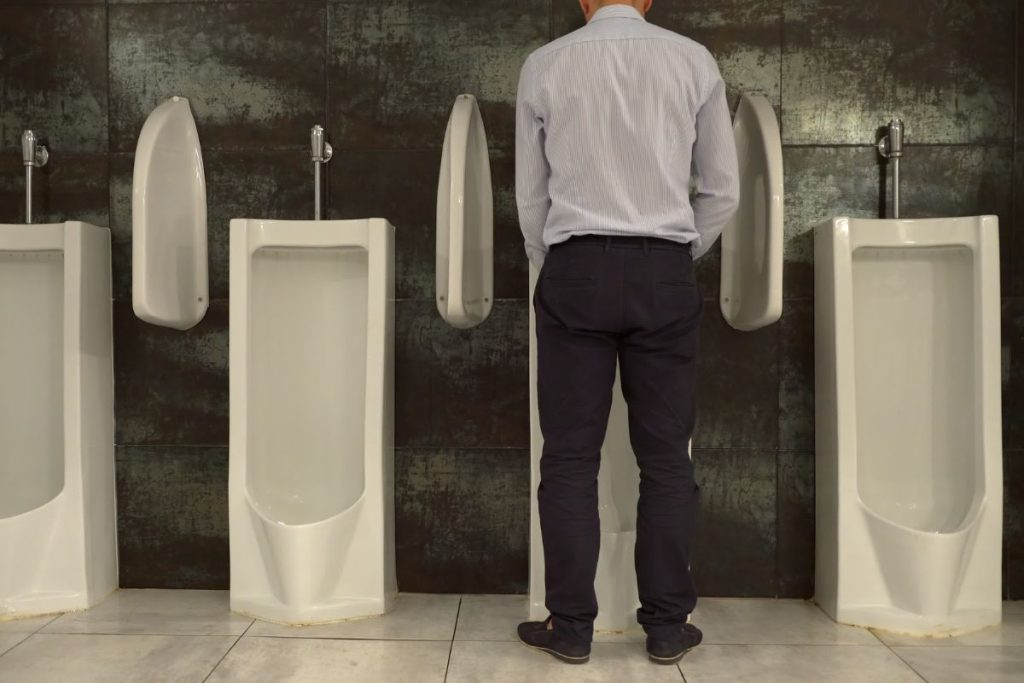Whether you urinate standing or sitting, embarrassed or not, before flushing, watch and pay attention to your pee that you have just poured into your toilet, bowl to be more precise. Obviously, this is not an easy exercise to do when urinating at the foot of a tree, in the woods, in a trout lake or in the urinal of a restaurant or in a shopping center. Here we are talking about urine that we can see and smell.
Why should you pay attention?
Because your urine hides a lot of secrets if only to know whether the athlete you admire did indeed deserve his medal at the Olympic Games or if his world record is legitimate. Because it is a vector of precious information on your state of health. Or because, if you are well informed, you could make connections between when to consult and not consult.
What is urine?
Urine is a liquid waste product from your body, mainly made up of water, salt and chemicals called urea and uric acid. Basically, your kidneys are responsible for filtering out all the toxins and flushing them out through your urinary tract system. How does it work? Your bladder is full, a message is sent to your brain which says to open the valve of your bladder (your sphincter) to evacuate the urine through a long hose (your urethra which crosses your prostate and your penis) in the toilet bowl.
What to watch?
Color and smell
Changes in the smell and color of your urine are generally safe, but can sometimes indicate a medical problem. Normal, healthy urine is usually slightly yellow with a slight odor. This shade comes from a pigment that your body makes, called urochrome.
The color of your urine can vary for a variety of reasons:
- Clear urine is a sign of good hydration and potential overhydration
- Pale yellow urine is an indicator of good hydration
- Dark yellow urine is a sign of drinking more fluids
- Amber urine may indicate dehydration
- Orange urine can be caused by a variety of foods, vitamins (vitamin B), or medications, or it may be a sign of potential liver problems.
- Pink or red urine can be caused by food (carrots, blackberries, beets, rhubarb) or medication or can also be a sign of blood in the urine (see below)
- Blue or green urine can be caused by drugs or food colors, but it can also be a sign of a rare bacteria or disease called blue layer syndrome
- Dark brown urine may be a sign of liver or kidney problems
- White urine may appear when your body contains excess calcium or phosphate or may indicate a urinary tract infection
- Foamy urine may be a sign that you have protein in your urine, which may mean you have kidney problems
Urine can have a variable odor for several reasons:
- You may feel a change in your urine odor after eating asparagus, due to the sulfur-containing asparagusic acid
- Dehydration can produce ammonia odor
- A urinary tract infection can produce sweet-smelling urine
- Fruity urine (sweet smell) can be a sign of type 2 diabetes
- Bad, smelly urine may indicate a sexually transmitted infection
Blood in your urine
The medical name for the blood in your urine is hematuria. Anyone can have hematuria, but you might be more likely to have it if you:
- Have a family history of kidney disease
- Have a history of kidney stones
- Have an enlarged prostate or prostatitis
- Have or recently had a urinary tract infection
- Have had a biopsy or other urinary tract intervention
- Have been treated for prostate cancer (surgery and above all, radiotherapy)
- Take certain medications, such as pain relievers, blood thinners, and antibiotics
- Take part in an intense (difficult) exercise
You should always consult your doctor if you notice a sudden change in the color or smell of your urine that does not seem to be related to new drugs or a recent meal – especially if the change lasts more than a day.
Take the time to visit each of our pages on this website, as well as our YouTube channel, in order to get familiar with the disease with our expert lectures, our section on available resources, the support that is offered to you.
Do you have any questions or concerns? Above all, do not hesitate. Contact us at 1 855 899-2873 to discuss with a nurse specializing in uro-oncology. It’s simple and free, like all our services.
Pages of our site that might interest you
Want to know more? Just click on one of the links below.
Recognize the signs and symptoms
Prostate-related diseases
New PROCURE news that may interest you
Each week, we publish a blog article. Here are a few for you.
Top 5 Men’s Health Risks
Adopt a Healthy Lifestyle – Regular Exercise
Sources and References
Canadian Cancer Association
Cleveland Clinic
American Diabetes Association
American Kidney Fund
Written by PROCURE. © All rights reserved – 2019



 ADDITIONAL RESOURCES
ADDITIONAL RESOURCES

